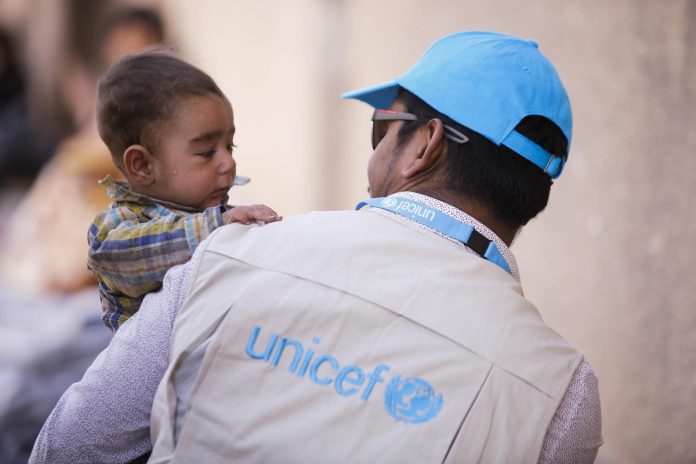A new report by the United Nations Children’s Fund showed that 510 children were abducted in three years due to the conflict in the north-east of the country.
The report also illustrated how violence and grave violations against children have led to a dire economic downturn, affecting not just the conflicted region but the country as a whole.
The report titled ‘The economic cost of conflict in north east Nigeria,’ revealed that Nigeria lost approximately $100bn from 2008 to 2021 due to the conflict in the northeast.
The report showed that in 2017, 244 children were abducted; 55 children were abducted in 2019; and 211 children were abducted in 2021.
Speaking at the launch of the report in Abuja on Wednesday, the UNICEF Representative, Cristian Munduate said, the study reveals that as of 2021, the Nigerian economy was 2.5 per cent smaller than it would have been without the conflict.
“This is more than just numbers, it goes beyond numbers and statistics. As of 2021, the Nigerian economy was 2.5 per cent smaller than it would have been without the conflict, and this is something that needs to be present in the consideration and the decision-making of the nation.
“But beyond the figures, there lies stories of shattered lives, of broken families, and of lost opportunities, and perhaps the most heartbreaking aspect of this study is the impact on our children.
“In 2021, it was estimated that one million children missed school due to the conflict, around 900,000 children were reported to suffer malnutrition, and close to 300,000 were reported to suffer acute malnutrition.”
According to her, the report is an urgent call to action.
“It is our duty to act and it is our moral imperative to respond. The time to act is now. The future of our children and our nation’s economic growth is at stake. We must prioritise peace and the protection of children’s rights to ensure a brighter future for Nigeria.
“Each statistic in this report represents a child, a future, a hope. Beyond the staggering figures, there is a compelling call to action. We cannot ignore it. The stakes are simply too high,” Munduate added.
Also, the Chief Child Protection Specialist, UNICEF Nigeria, Ibrahim Sesay said the lives behind the figures are critical to take note of.
Sesay said each of the numbers represents a tragedy for these children and their families.
“We also see the deprivation of education where the children should be in school, their families are possibly displaced from their homes and communities are struggling in an era where there is cash famine.
“The report should not be seen as a tale of despair but it should guide us to understanding the level of compassion and concerted action that we should put into motion and how to make sure the children are back to school, put our efforts and resources in promoting psychosocial recovery of the children.”
On his part, Governor Babagana Zulum of Borno State said there is a need to address insecurity and the psychological impact of the conflict on the children.
Zulum, who was represented by his Chief Adviser, Adamu Abbass, said though the focus of the report is on the economic cost of the conflict in the north east, there are more costs for the children.
“What is the goal for these kids? To me, there is a need to assess that so that they can fit into the society and contribute to the society. Children are the future of the country.
“Another important issue in the whole conflict scenario is insecurity. We can continue to address the symptoms but as long as we do not address insecurity itself, we will just be beating about the bush. We need to address the basis of insurgency,” he said.


